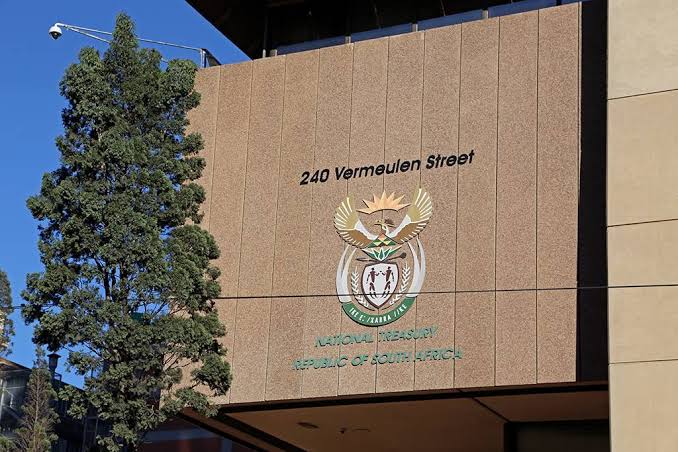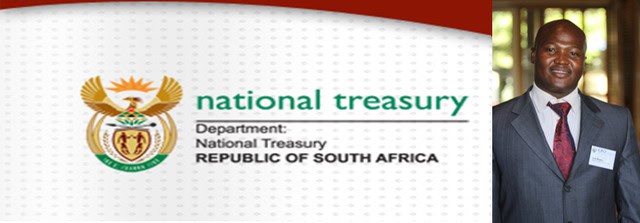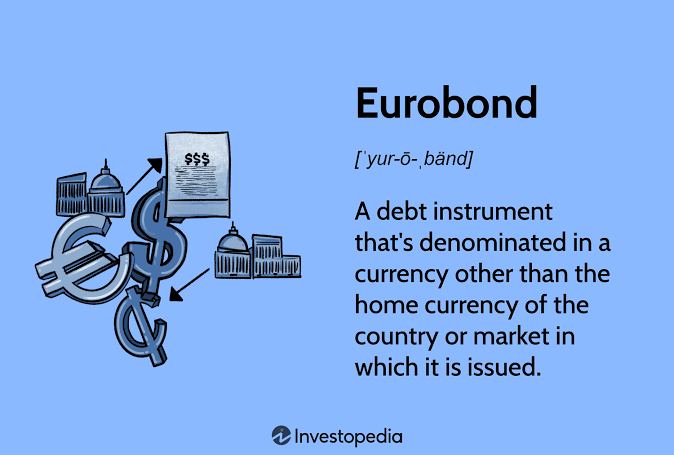South Africa's $500 Million Innovative Financing Initiative: An African Blueprint

When Amapiano rhythms are heard globally, they carry with them a certain assurance, a rhythm that innovates rather than imitates. The same principle is now being attempted by South Africa's National Treasury in finance.

It has just launched a $500 million foreign-currency financing initiative which received over 100 proposals submitted from international investors at short notice.
This is more than the usual cash raise; this is a new bold script on the way an African sovereign nation interacts with world capital, pointing to a defining search for economic growth and stability on the basis of reduced reliance on old ways.
Beyond the Eurobond; Describing The Initiative.
For years, African governments relied heavily on Eurobonds. These are big, high-rate loans sold to a broad pool of foreign investors to fund development. Eurobonds gave governments quick cash but left nations vulnerable to volatile world market swings and usurious interest rates.

South Africa's new policy consciously goes in the other direction. The $500 million target is being pursued with a diversified set of new funding tools:
Structured Notes: Specialized vehicles for issuing debt that allow the government to hedge against a specific risk, such as currency risk, offering customized security to investors.
Private Placements: Issuance of debt directly to a small selection of large institutional investors (e.g., pension funds or private equity), bypassing the volatility and expense of the public bond market.
ESG-Linked Bonds: Those bonds where the interest rate is linked to the government's performance on Environmental, Social, and Governance (ESG) goals. Miss a goal (reduce carbon emissions or promote social justice), and the interest rate rises; achieve the goal, and the cost of borrowing declines.
The overall objective is to increase the pool of debt and find cheaper, more secure sources of finance, creating stability against market shocks that have recently plagued other African economies.
The Global Response: A Vote of Confidence
The surge of interest-more than 100 proposals from international banks, private equity funds, and specialist environmental, social and governance funds-speaks volumes of a shift in perception.
The massive oversubscription speaks to the fact that sophisticated international capital retains a firm conviction in South Africa's underlying fiscal integrity, notwithstanding domestic challenges such as power outages and unemployment bedeviling the nation.
Contrast it with the recent financing woes of peers.
Ghana's debt reprofiling, which mainly resulted from previous aggressive issuance of Eurobonds, serves as a recent warning of the risk of overdependence on traditional public debt.
Although Nigeria (and its Sukuk or Islamic bonds) and Kenya (and its infrastructure bonds) already have some experience with specialized financing, it is South Africa that is targeting the more advanced, high-value end of the universe of structured finance. Strong demand attests that investors are willing for the sophistication of the issuer, in the case of the National Treasury, demonstrates stability and ingenuity.
Broader Economic Consequences
This fiscal trick is not an isolated exercise; it is part of South Africa's wider strategy of economic reform. Success here has concrete, direct payoffs:
Lower Borrowing Costs: By attracting capital that values ESG metrics, the government can borrow at good terms.
Improved Investor Confidence: Using advanced, structured finance shows worldly sophistication and technical expertise in money management.
Boost to Strategic Industries: Such funds raised often find their way into strategic sectors like energy infrastructure and greenfield sustainable development ventures, pouring much-needed capital into the economy.
The main risk, however, is managing the complexity. Structured notes demand more technical expertise on the part of the Treasury to structure and handle them well, and, like any foreign-capital initiative, continue to expose the country's financial well-being to foreign market forces.
Regional and Continental Implication
The step that South Africa is taking can initiate a significant shift across the entire continent. It is an in-real-life, high-stakes example that other African finance ministries can study and follow.
Egypt's green bond success and Kenya's commitment to green finance already belong to this new wave, but South Africa's $500 million push, with its cross-over attraction by means of several structured products, raises the ambition even higher.
It sends a clear message to international markets: African economies are abandoning the crude tool of the Eurobond. We are constructing the refinement to offer customized, risk-adjusted, and even sustainability-linked instruments. This writes a new narrative of African financial sovereignty.
Financing Africa's Future
The goal is not just to raise $500 million; it's to redefine in a fundamental way Africa's access to global capital markets. The tools being employed, ESG-linked debt, private placements, and structured notes are a world where borrowing costs are anchored in real development and climate targets, bringing governments to book in public.
This South African pilot project illustrates that with African nations, development is not how much you spend, but how you spend.

The real test will not be the amount of dollars raised, but whether this model ignites a continental shift towards more sustainable, more equitable, and more innovative funding making Africa's next growth as distinctive and cutting-edge as the Amapiano beats its exports to the world.
Recommended Articles
From Addiction to Astonishing Health: Couple Sheds 40 Stone After Extreme Diet Change!

South African couple Dawid and Rose-Mari Lombard have achieved a remarkable combined weight loss of 40 stone, transformi...
Mugabe Scion's Shocking Arrest: Son of Late Dictator Detained in South Africa for Alleged Attempted Murder!

Zimbabwe's late former President Robert Mugabe's youngest son, Bellarmine Mugabe, has been arrested in South Africa on a...
Mugabe Family Scandal Explodes: Chatunga Arrested for Hyde Park Shooting Incident

Bellarmine Chatunga Mugabe, son of the late Zimbabwean President Robert Mugabe, has been arrested in Johannesburg follow...
Billions Invested As Cape Town Airport Kicks Off Mega Overhaul

Cape Town International Airport is embarking on a massive R21.7 billion renovation program set to begin construction in ...
Explosive Accusations: Ex-President Lungu's Family Fights Poisoning Allegations

Former Zambian President Edgar Lungu's burial remains mired in controversy months after his death, as his family and the...
A Nation's Uneasy Rest: Edgar Lungu's Burial Dispute Deepens with SA Court Ruling Looming!

A criminal investigation has been launched in South Africa into the death of former Zambian President Edgar Lungu, with ...
You may also like...
When Sacred Calendars Align: What a Rare Religious Overlap Can Teach Us

As Lent, Ramadan, and the Lunar calendar converge in February 2026, this short piece explores religious tolerance, commu...
Arsenal Under Fire: Arteta Defiantly Rejects 'Bottlers' Label Amid Title Race Nerves!

Mikel Arteta vehemently denies accusations of Arsenal being "bottlers" following a stumble against Wolves, which handed ...
Sensational Transfer Buzz: Casemiro Linked with Messi or Ronaldo Reunion Post-Man Utd Exit!

The latest transfer window sees major shifts as Manchester United's Casemiro draws interest from Inter Miami and Al Nass...
WBD Deal Heats Up: Netflix Co-CEO Fights for Takeover Amid DOJ Approval Claims!

Netflix co-CEO Ted Sarandos is vigorously advocating for the company's $83 billion acquisition of Warner Bros. Discovery...
KPop Demon Hunters' Stars and Songwriters Celebrate Lunar New Year Success!

Brooks Brothers and Gold House celebrated Lunar New Year with a celebrity-filled dinner in Beverly Hills, featuring rema...
Life-Saving Breakthrough: New US-Backed HIV Injection to Reach Thousands in Zimbabwe

The United States is backing a new twice-yearly HIV prevention injection, lenacapavir (LEN), for 271,000 people in Zimba...
OpenAI's Moral Crossroads: Nearly Tipped Off Police About School Shooter Threat Months Ago
ChatGPT-maker OpenAI disclosed it had identified Jesse Van Rootselaar's account for violent activities last year, prior ...
MTN Nigeria's Market Soars: Stock Hits Record High Post $6.2B Deal

MTN Nigeria's shares surged to a record high following MTN Group's $6.2 billion acquisition of IHS Towers. This strategi...
